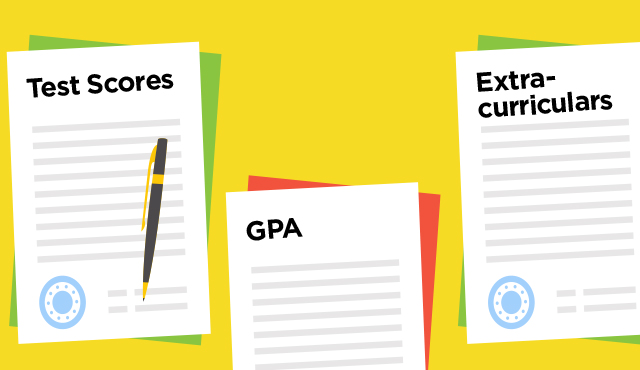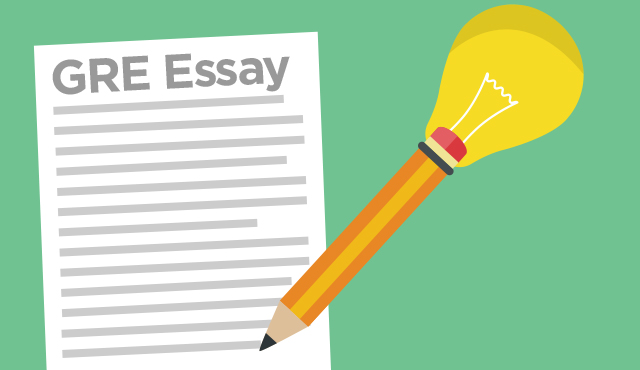Essay Papers Writing Online
Writing an outstanding graduate school essay – insider tips from experts.

Are you ready to embark on the next stage of your academic journey? As you contemplate pursuing a graduate degree, it’s crucial to recognize the significance of your statement of purpose. This essential document serves as your opportunity to stand out among the highly competitive pool of applicants and persuade the admissions committee why you belong in their esteemed program.
While the thought of distilling your accomplishments, goals, and motivations into a single essay may seem intimidating, fear not! With a strategic approach, you can create a captivating statement of purpose that showcases your unique qualities and potential contributions to your chosen field.
One key strategy to master is storytelling. Rather than simply listing your achievements and aspirations, weave a narrative that engages the reader and conveys your passion. By sharing experiences that have shaped your academic trajectory and personal growth, you can craft a compelling narrative that demonstrates your commitment and drive.

How to Make Your Grad School Essay Stand Out
Ensuring that your grad school essay catches the attention of the admissions committee is crucial to increasing your chances of acceptance. To achieve this, it is important to focus on crafting a unique and compelling essay that showcases your individuality, strengths, and potential contributions to the academic community.
One strategy is to begin your essay with a captivating anecdote or personal story that relates to your field of study or demonstrates your passion and dedication. This approach can help to engage the reader from the very beginning and create a memorable impression.
Another way to make your grad school essay stand out is to showcase your research and academic accomplishments. Highlighting any relevant publications, research projects, or awards can demonstrate your commitment to your chosen field and establish your credibility as a prospective graduate student.
Furthermore, it is important to tailor your essay to the specific program or institution you are applying to. Researching the program and understanding its unique qualities and values can allow you to effectively demonstrate how your own goals and aspirations align with those of the program, making your essay more compelling and convincing.
Additionally, focusing on your future goals and aspirations can help to demonstrate your motivation and potential for success in graduate school. Clearly articulating how the program will help you achieve your career objectives can showcase your ambition and dedication, distinguishing you from other applicants.
In conclusion, crafting a grad school essay that stands out requires a combination of creativity, research, and self-reflection. By showcasing your unique qualities, academic achievements, and future goals, you can create a compelling essay that grabs the attention of the admissions committee and increases your chances of being accepted into your desired graduate program.
Why a compelling opening is crucial
Having an attention-grabbing introduction is essential when it comes to writing a standout essay for graduate school admissions. The beginning of your essay sets the tone for the entire piece, capturing the reader’s interest and making them want to keep reading. It is the first impression you make on the admissions committee, and it can make a significant impact on their decision-making process.
A compelling opening establishes your voice and demonstrates your ability to engage the reader. It showcases your writing skills and creativity, indicating that you possess the qualities necessary for success in graduate school. An impressive introduction helps you stand out from the competition and makes your essay memorable.
Moreover, a strong opening can also help to establish a connection with the reader. It can evoke emotions, create empathy, or raise thought-provoking questions that stimulate their interest. By capturing their attention from the beginning, you have a better chance of keeping them engaged throughout your essay.
Additionally, a well-crafted introduction should provide a glimpse into your motivation for pursuing a graduate degree. It should convey the reasons behind your choice and highlight your passion and commitment to the field. By communicating your genuine interest and dedication, you present yourself as a desirable candidate to the admissions committee.
In conclusion, a compelling opening is crucial for a successful grad school essay. It sets the tone, showcases your writing skills, and establishes a connection with the reader. By crafting an attention-grabbing introduction, you increase your chances of making a positive impression and standing out among other applicants. So, take the time to develop an engaging beginning that captures the reader’s interest and leaves a lasting impact.
Highlight your unique experiences and achievements

Shine a light on the aspects of your life that make you stand out from other applicants by highlighting your unique experiences and achievements. Show the admissions committee the qualities, skills, and talents that make you a compelling candidate for their graduate program.
When writing your grad school essay, consider the different experiences you have had that have shaped you as an individual. Maybe you have lived in different countries or have volunteered in a unique community service program. Highlight these experiences and explain how they have influenced your worldview and your desire to pursue advanced education.
Besides experiences, also focus on your achievements. Have you received any awards or recognition for your work? Have you published any research or articles? Have you completed any notable projects that demonstrate your skills and abilities? These achievements can help demonstrate your commitment and ability to succeed in graduate school.
It’s important to remember that while talking about your experiences and achievements, you should also tie them back to your goals and aspirations for graduate school. Show how these experiences have motivated you to pursue further education and how they have prepared you for the challenges and opportunities that lie ahead.
In conclusion, when writing your grad school essay, don’t shy away from showcasing your unique experiences and achievements. They can help differentiate you from other applicants and demonstrate your potential as a graduate student. Use specific examples and vivid language to paint a clear picture of who you are and what you have to offer to the graduate program you are applying to.
Showcase your passion and commitment for the subject
One of the most important aspects of writing an effective grad school essay is to showcase your genuine passion and unwavering commitment for the subject you are applying for. Admissions committees are not just looking for applicants who meet the academic requirements; they want to see individuals who are truly passionate about their chosen field of study.
When writing your essay, it is essential to convey your enthusiasm and dedication in a compelling way. You can achieve this by sharing personal anecdotes that illustrate how you discovered your passion for the subject and how it has shaped your academic and professional aspirations. By painting a vivid picture of your journey, you can help the admissions committee understand why you are the ideal candidate for their program.
Furthermore, it is vital to demonstrate your commitment to the subject by highlighting your relevant experiences and achievements. This could include internships, research projects, publications, or any other activities that demonstrate your active involvement within the field. Showcasing these accomplishments not only highlights your dedication but also provides tangible evidence of your abilities and potential for success in graduate school.
In addition to describing your experiences, it is essential to explain how these experiences have influenced your goals and aspirations. What specific lessons did you learn? How have these experiences shaped your understanding of the subject? By reflecting on these questions, you can provide deeper insights into your passion and commitment, showing the admissions committee that you have a thoughtful and informed understanding of your chosen field.
Finally, while it is crucial to showcase your passion and commitment, it is equally important to maintain a professional and concise writing style. Avoid excessive enthusiasm or exaggeration; instead, focus on presenting your genuine interest and dedication in a clear and concise manner. Strive to strike a balance between showcasing your passion and commitment while also demonstrating your ability to communicate effectively and professionally.
In conclusion, showcasing your passion and commitment for the subject is essential in writing an effective grad school essay. By sharing personal anecdotes, highlighting relevant experiences, explaining the lessons learned, and maintaining a professional tone, you can convince the admissions committee that you are not only passionate but also well-prepared to contribute to their program.
Emphasize your potential for future success
Highlighting your potential for future success is crucial when writing your graduate school essay. This section allows you to showcase your unique qualities, skills, and experiences that make you stand out as a candidate.
- Focus on your achievements: Demonstrate your past accomplishments and how they have shaped your character and professional aspirations. Highlight any leadership roles, academic awards, research projects, or internships that have contributed to your growth and development.
- Showcase your passion: Share your genuine passion for your field of study and your drive to make a meaningful impact. Discuss specific experiences or events that have inspired you and how they have influenced your career goals.
- Highlight your skills: Identify the key skills and strengths that will enable you to succeed in your chosen field. Whether it’s critical thinking, problem-solving, communication, or teamwork, provide examples of how you have demonstrated these skills in the past.
- Outline your future goals: Clearly articulate your short-term and long-term goals and how attending graduate school will help you achieve them. Explain how your previous experiences and skills have prepared you for these goals and how the graduate program aligns with your future plans.
- Demonstrate your dedication: Show your commitment to your field of study by discussing any relevant extracurricular activities, volunteer work, or professional experiences. Highlight your ability to balance multiple responsibilities and how you have gone above and beyond to pursue your passion.
This section of your graduate school essay allows you to paint a picture of your potential for future success. By showcasing your achievements, passion, skills, goals, and dedication, you can convince the admissions committee that you are not only qualified for the program but also have the drive and potential to excel in your field.
The importance of proofreading and editing
Ensuring the accuracy and clarity of your writing is essential when it comes to presenting your ideas effectively in a graduate school essay. That’s why proofreading and editing play a crucial role in the writing process. They go beyond simply checking for spelling and grammar errors, and involve reviewing and revising your content to improve its overall quality.
Proofreading involves carefully reading through your essay to identify any errors or inconsistencies. This includes checking for spelling mistakes, grammatical errors, and punctuation errors. It also involves reviewing the structure and flow of your sentences and paragraphs to ensure they are clear and coherent.
Editing, on the other hand, focuses on making revisions to improve the content and style of your essay. This includes clarifying your ideas, removing any unnecessary or repetitive information, and rephrasing sentences for clarity and conciseness. Editing also involves checking the overall organization and structure of your essay to ensure it follows a logical and cohesive format.
The importance of proofreading and editing cannot be overstated. When you take the time to carefully review and revise your work, you can eliminate any errors or weaknesses that may weaken your argument or confuse your readers. By ensuring your writing is clear, concise, and well-structured, you can effectively convey your ideas and make a strong impression on the admissions committee.
Proofreading and editing also help you to improve your writing skills. By carefully reviewing your work and identifying areas for improvement, you can learn from your mistakes and grow as a writer. It allows you to develop a critical eye and attention to detail, which are valuable skills that can benefit you not only in your graduate studies but also in your future career.
In conclusion, proofreading and editing are essential steps in the writing process for a graduate school essay. They ensure the accuracy, clarity, and overall quality of your writing, allowing you to effectively convey your ideas to the admissions committee. Additionally, they help to improve your writing skills and develop important attention to detail. So take the time to thoroughly proofread and edit your essay to make it the best it can be.
Related Post
How to master the art of writing expository essays and captivate your audience, convenient and reliable source to purchase college essays online, step-by-step guide to crafting a powerful literary analysis essay, tips and techniques for crafting compelling narrative essays.

How to Write a Stand-Out Personal Statement for Your Graduate School Application

While deciding to embark on the path to graduate school is an exciting first step toward advancing your career, the application process can sometimes feel daunting and confusing.
One major part of the application that most schools require is a personal statement. Writing a personal statement can be an arduous task: After all, most people don’t necessarily enjoy writing about themselves, let alone at length.
A compelling personal statement, however, can help bring your application to the top of the admissions pile. Below, we’ve outlined what you need to know about crafting a personal statement to make your application shine.
What Is a Personal Statement?
The point of a personal statement is for the admissions board to gain a deeper understanding of who you are apart from your education and work experience. It explains why you’re the right fit for the program and a worthwhile applicant. It’s also an opportunity to highlight important factors that may not be readily available in the rest of your application.
A personal statement is different from a statement of purpose (if you’re asked for that as well). A statement of purpose will touch on your academic and career goals, as well as your past credentials. While those should also be discussed in your personal statement, it’s more about your life experiences and how they’ve shaped you and your journey to graduate school.
Questions to Ask Yourself Before Writing a Personal Statement
Before you start crafting your essay, there are a few prompts you can ask yourself to help clarify what you want to accomplish.
- What are the key points you want to communicate about yourself?
- What personal characteristics or skills do you have that make you a strong candidate for this field?
- What exactly are your career goals, and how does graduate school play into them?
- What have you learned about this field already? When did you first choose to follow this path, and what do you enjoy about it?
- What do you think is important for the admissions board to know specifically about you?
- Are there any discrepancies or causes for concern in your application you need to address? For example, is there a career and schooling gap, or a low GPA at one point? This is the time to discuss whether a personal hardship may have affected your academics or career.
- Have you dealt with any unusual obstacles or difficulties in your life? How have they affected and shaped you?
- What sets you apart and makes you unique from other graduate school applicants?
- What factors in your life have brought you to where you are today?
Top Tips for Writing a Graduate School Personal Statement
Pick a few points to emphasize about yourself . Introduce yourself to the admissions board. Select key factors about your background that you want the university to know — elements that reveal what kind of person you are and demonstrate why you’re a strong candidate for the school and field of study.
Be very specific . Again, a personal statement is all about communicating what distinguishes you from other applicants. To accomplish that, you need to share specific anecdotes that underscore your statements. If you say you’re a strong leader, present an example of a time you’ve proven that skill through work, school or your personal life. These specific, personal stories provide a deeper understanding of who you are and prove your intentions.
Do your research . Demonstrate what attracted you to the program. If there is a specific faculty member or class that caught your attention, or another aspect of the program that greatly interests you, convey it. This shows you’ve truly researched the school and have a passion for the program.
“Whatever the topic may be, I would recommend writing in a manner that reflects or parallels the institution’s and/or department’s missions, goals and values,” said Moises Cortés, a graduate/international credentials analyst for the Office of Graduate Admission at USC .
Address any gaps or discrepancies . Explain any factors that may have impacted your academic career. If you had an illness or any other personal hardships that affected your grades or work, discuss them. If there is a discrepancy between your grades and your test scores, you can also take the time to go over any extenuating circumstances.
Strike the right tone . While it’s important to give readers a glimpse of your personality, avoid oversharing or revealing intimate details of your life experiences. You should also avoid making jokes or using humorous cliches. Maintain a professional tone throughout your writing.
Start strong and finish strong . As with any piece of writing, you want to draw in your readers immediately. Make sure to start off with an interesting and captivating introduction. Similarly, your conclusion should be a well-written, engaging finish to the essay that highlights any important points.
“ For a personal statement, I think the first and last paragraphs are most important and should always relate the program they are applying to their own experiences and ideas,” Hoon H. Kang, a graduate/international credential analyst with the Office of Graduate Admission, told USC Online.
Proofread, proofread and proofread again . We can’t emphasize enough the importance of rereading your work. Your personal statement is also an analysis of your writing skills, so ensure you have proper grammar and spelling throughout. In addition, we recommend having multiple people look over your statement before submission. They can help with the proofreading (a second person always catches a mistake the writer may miss), give advice about the statement’s structure and content, and confirm it’s the proper recommended length.
Once you’ve considered all of the above and reviewed and edited your personal statement to perfection, it’s time to submit and check off any remaining application requirements, including your resume and letters of recommendation .
Personal statements are arguably one of the most challenging aspects of applying to graduate school, so make sure to revel in this accomplishment and acknowledge your successes.
For more information, visit the Office of Graduate Admission at USC and explore USC Online ’s master’s degrees, doctoral programs and graduate certificates.
- DACA/Undocumented
- First Generation, Low Income
- International Students
- Students of Color
- Students with disabilities
- Undergraduate Students
- Master’s Students
- PhD Students
- Faculty/Staff
- Family/Supporters
- Career Fairs
- Post Jobs, Internships, Fellowships
- Build your Brand at MIT
- Recruiting Guidelines and Resources
- Connect with Us
- Career Advising
- Distinguished Fellowships
- Employer Relations
- Graduate Student Professional Development
- Prehealth Advising
- Student Leadership Opportunities
- Academia & Education
- Architecture, Planning, & Design
- Arts, Communications, & Media
- Business, Finance, & Fintech
- Computing & Computer Technology
- Data Science
- Energy, Environment, & Sustainability
- Life Sciences, Biotech, & Pharma
- Manufacturing & Transportation
- Health & Medical Professions
- Social Impact, Policy, & Law
- Getting Started & Handshake 101
- Exploring careers
- Networking & Informational Interviews
- Connecting with employers
- Resumes, cover letters, portfolios, & CVs
- Finding a Job or Internship
- Post-Graduate and Summer Outcomes
- Professional Development Competencies
- Preparing for Graduate & Professional Schools
- Preparing for Medical / Health Profession Schools
- Interviewing
- New jobs & career transitions
- Career Prep and Development Programs
- Employer Events
- Outside Events for Career and Professional Development
- Events Calendar
- Career Services Workshop Requests
- Early Career Advisory Board
- Peer Career Advisors
- Student Staff
- Mission, Vision, Values and Diversity Commitments
- News and Reports
Graduate School Application Essays
- Share This: Share Graduate School Application Essays on Facebook Share Graduate School Application Essays on LinkedIn Share Graduate School Application Essays on X
Types of Essays
Regardless of the type of school you are applying to, you will be required to submit an admissions essay as part of the application process. Graduate programs want students with clear commitment to the field. Essay prompts typically ask applicants to discuss their previous experience, future professional goals, and how the program can help them in achieving those objectives. The essay gives the applicant the chance to articulate these goals and display strong writing skills. Remember to tailor your essay to each school and the faculty committee that reviews your application. But first, take note of what kind of essay is being requested of you. Here are the two main admission essays:
Personal Statement
A personal statement is a narrative piece describing how your character and experiences have formed you into someone who will contribute positively and effectively to not only the department but the academic discipline as a whole. This is often achieved by detailing social, educational, cultural, and economic obstacles you have overcome in your journey to get to where you are today and your future objectives. A personal statement is also an opportunity to highlight what is unique about you and how you will advance diversity within the institution.
Check out Personal Statement Resources for Graduate School Applications in the Resources section of Handshake for a brainstorming activity and essay samples that can help you get started on your personal statement.
Statement of Purpose
Interchangeably called a “research statement”, a statement of purpose will prompt you to describe your research interests and professional goals, how you plan to accomplish them, and why a specific program is best suited for you to do so. Be specific about your specialized interests within your major field. Be clear about the kind of program you expect to undertake, and explain how your study plan connects with your previous training and future goals.
Use the Outlining Your Statement of Purpose guide in the Resources section of Handshake to get started on your statement outline.
How to Write a Powerful Admission Essay
Whatever required format, your essay should be thoughtful, concise, compelling, and interesting. Remember, admissions officers read hundreds of personal essays. Below are some tips for your admissions essay writing process:
Before Writing
- Read the question: Be sure you are aware of all aspects of the prompt. Failing to pay attention to details in the prompt won’t reflect well on you as a potential candidate.
- What is distinct, special, and/or impressive about me and my life story?
- Have I overcome any particular hardships or obstacles?
- When did I become interested in this field and what have I learned about it?
- What are my career goals?
- What personal traits, values, and skill sets do I have that would make me stand out from other applicants?
- Create an outline: You might have a lot that you want to say, but you will need to whittle down your many thoughts and experiences to a concrete thesis with a select number of examples to support it. Create an outline for your draft, not only to organize your points and examples, but to help tailor your essay for your readers.
- Know your audience: Consider how your narrative can best meet the expectations of admissions committee members. Will faculty be reading this? Administrators? Experts in the field? Knowing your audience ahead of time will assist you in addressing the prompt appropriately.
While Writing
- Grab your reader’s attention: Start your essay with something that will grab the reader’s attention such as a personal anecdote, questions, or engaging depiction of a scene. Avoid starting things off with common phrases such as “I was born in…” or “I have always wanted to…” Consider the experiences that have shaped you or your career decision, and delve into them with a creative hook.
- Write well: Your essay is a sample of your writing abilities, so it’s important to convey your thoughts clearly and effectively. Be succinct—you don’t need to write out your full autobiography or resume in prose. Exclude anything that doesn’t support your thesis. Gentle humor is okay, but don’t overdo it. Also, don’t make things up! Be honest about your experiences.
- End strong: End your essay with a conclusion that refers back to the lead and restates your thesis. This helps unify your essay as a whole, connecting your detailed experiences back to the reason you are writing this essay in the first place—to show your qualifications for your graduate program of choice.
Final Touches
- Use resources: The MIT Communication Labs have a CommKit that collects all of the Comm Lab resources relevant to the grad application process , including recommendation letters & interviews
- Revise: Give yourself enough time to step away from your draft. Return with a fresh pair of eyes to make your edits. Be realistic with yourself, not your harshest critic. Make a few rounds of revisions if you need.
- Ask for help: Have your essay critiqued by friends, family, educators, and the MIT Writing and Communication Center or our Career Services staff.
- Proofread: Read your essay out loud or even record yourself and listen to the recording, to help you catch mistakes or poor phrasing you may have missed when reading to yourself. Also, don’t rely exclusively on your computer to check your spelling.

Breadcrumbs
How to write a standout graduate admissions essay, article highlights.
- Reflect before you begin your application essays.
- Outline your ideas before you put pen to paper.
- Write freely, and then return to edit your essay on the second draft.
- Take your time. Break between writing and editing for a fresh perspective.
- Gather feedback from a trusted source.
- Read your essay aloud to identify needed edits.
Everyone has a story to tell, and we know there’s more to you and your talents than what’s on your resume. But how will you stand out from the crowd when applying to Johns Hopkins Carey Business School?
The essay portion of the application is your opportunity to expand beyond your transcript and resume. Share your unique strengths, your background, your growth, or whatever else makes you a strong candidate for Johns Hopkins Carey Business School.

In this article, you will find a detailed explanation of how to write a standout admissions essay.
How to prepare
Before you begin writing, read the essay prompts carefully. Take a moment to reflect and explore why you’re pursuing a graduate business degree. Consider having a pen and notepad nearby as you participate in this reflection exercise. Think about your path thus far and pinpoint moments of growth and learning. Take note of how these moments have shaped you and how these experiences will guide you through your graduate business degree at Carey.
Map your ideas:
Now that you have an idea of how to share your story within the context of the essay prompts, it’s time to draft an outline . Map out your key points and outline the supporting examples. As you map the direction and flow of your essay through the outline, keep in mind your audience. Our admissions officers read thousands of application essays, so you want to find a creative hook to make your story stand out.
Don’t overthink it! Start writing:
As you start to write your first draft, let the words flow. At this stage, don’t fixate on grammar or finding the perfect word– just get your thoughts on paper. You will finesse and polish your essay in the second draft.
Share this Article
What to read next.

Take a break:
Once you complete your first draft, take a day or two before returning to edit it. Coming back to your writing with fresh eyes allows you to read it with a new perspective. Tackle the details of grammar, punctuation, and vocabulary during this second pass. Consider reading your essay backward to help catch typos.
Get feedback:
Once you feel your essays are in a good place, it is highly recommended that you share them for review. Share them with your advisor, a trusted colleague, friend, or even your recommender . Getting insights from a trusted source can help you make your essay stronger, as well as catch any typos or small edits.
Finalize and submit:
You are almost done. Before submitting your essays, do a final review. Run a spell check and read the essays out loud to yourself. This trick allows you to identify areas that may need clarification or tweaks. As you review your final draft, make sure that you actually answered the question posed on the application.
Remember, the essay portion of your application is your chance to stand out from the crowd. By sharing who you are as a person, your growth thus far, your passions, your goals, and your voice, you can make a lasting impression. Best of luck with your application process!
Just the facts
Discover related content.

online programs
- How to apply
- How to apply: Full-time MS
- How to apply: Full-time MBA
- Career Development
- Defining Your Babson
- First Year at Babson
- Graduate Admissions
- Graduate Life
- Rankings & Recognition
- Student & Alumni Businesses
- Babson Entrepreneurs
- Global & Multicultural
- Women's Leadership
- Faculty in the News
- Innovative Curriculum
- Research and Practice
- Corporate Social Relevance
- Service in Action
- Social Innovation
- Youth Entrepreneurship
Permanent Link: https://blogs.babson.edu/graduate/2018/08/24/5-tips-for-nailing-your-graduate-school-essay/
Graduate Blog / Graduate Admissions
5 tips for nailing your graduate school essay.
By Johanna Beers | August 24, 2018
When applying for graduate school, the essay is a great way to stand out from the rest of the applicants. Johanna Beers , associate director of Graduate Admissions, at Babson College gives an insider perspective on what makes a graduate school essay that will set you apart.
Find your story
In the application process, the essay is a key opportunity to round out the admissions committee’s understanding of who you really are. Your résumé and recommendation focus on your professional life, and your test scores and transcripts focus on your academics, but the essay is where we get to know you. This is a chance to share your values, what your goals are, and why you are specifically interested in pursuing a graduate degree at our college. While you are forming a picture of what life might be like as a student, the essay helps us to picture you as a member of the community.
Find the “X” factor
Every graduate school you will be applying to is different. They all have unique offerings and mindsets of what a graduate degree means. When you are writing your essay, make sure you understand what makes that specific school unique. It can be tempting to copy and paste an essay from another school that is similar, but resist the temptation. For example, at Babson, one of the essay prompts asks about “entrepreneurs of all kinds,” understanding what that means in the context of Babson will be vital to a great essay. There is no one-size-fits-all approach to a graduate school essay, each one needs to be personalized and tailored to the specific school and program.
Proofread! Proofread! Proofread!
This may sound obvious, but never forget the final review of your essay. This is crucial to catch any last mistakes, like using the wrong school name, or using a word in the wrong context that spell check did not catch. Something as simple as using the word “university” vs. “college” can turn off an admissions counselor and come off as careless. Sometimes it is the little things!
Take ‘optional’ literally
Most schools have an optional essay, and some people may tell you that you should always complete it. We do not believe that is the case. The optional essay should be for explaining anything in your professional or academic offerings that needs additional information. Is there a gap in your résumé? Did you have a year in undergraduate that did not go particularly well? This is the place where you can give context to anything that might stand out. If you do not have anything of that nature, do not force yourself to write the optional essay. Just because it is there, does not mean that you need it.
Be authentic
We know there is a lot of pressure around the essay to hit all the important topics: leadership, teamwork, professional development, and others, but do not just tell us what we want to hear. We want to hear a story about you, a story that only you can tell. Trying to write to what you think we want to hear does not come off as authentic. We want to make sure that the details do not get in the way of your personality. We should be able to know who you are from the story of your essay.
Share this:
- Click to share on Twitter (Opens in new window)
- Click to share on Facebook (Opens in new window)
More From Babson Blogs
Posted in Graduate Admissions
Tagged Babson MBA , Babson MSA , Babson MSEL , Babson MSF , Blended Learning MBA , Choosing an MBA , Evening MBA , One Year MBA , Two-Year MBA
How to Write the Graduate Admissions Essay
- Admissions Essays
- Choosing a Graduate Program
- Tips & Advice
- Recommendation Letters
- Medical School Admissions
- Homework Help
- Private School
- College Admissions
- College Life
- Business School
- Distance Learning
- Ph.D., Developmental Psychology, Fordham University
- M.A., Developmental Psychology, Fordham University
It should come as no surprise that most applicants do not enjoy drafting their graduate admissions essay. Writing a statement that tells a graduate admissions committee all about you and can potentially make or break your application is stressful. Take a different perspective, however, and you will find that your admissions essay is not as daunting as it seems.
What is its Purpose?
Your graduate school application provides the admissions committee with a great deal of information about you that cannot be found elsewhere in your graduate application. The other parts of your graduate school application tell the admissions committee about your grades (i.e., transcript ), your academic promise (i.e., GRE scores ), and what your professors think of you (i.e., recommendation letters ). Despite all of this information, the admissions committee does not learn much about you as an individual. What are your goals? Why are you applying to graduate school?
With so many applicants and so few slots, it's critical that graduate admissions committees learn as much as possible about applicants so as to ensure that they choose students who best fit their program and are most likely to succeed and complete a graduate degree. Your admissions essay explains who you are, your goals, and the ways in which you match the graduate program to which you are applying.
What Do I Write About?
Graduate applications often ask that applicants write in response to specific statements and prompts . Most prompts ask applicants to comment on how their backgrounds have shaped their goals, describe an influential person or experience, or discuss their ultimate career goals. Some graduate programs request that applicants write a more generic autobiographical statement, most often referred to as a personal statement.
What is a Personal Statement?
A personal statement is a general statement of your background, preparation, and goals. Many applicants find it challenging to write a personal statement because there is no clear prompt to guide their writing. An effective personal statement conveys how your background and experiences have shaped your career goals, how you are well matched to your chosen career and provides insight into your character and maturity. No easy feat. If you are asked to write a generic personal statement, pretend that the prompt instead requires you to discuss how your experiences, interests, and abilities have lead you to your chosen career.
Begin Your Admissions Essay by Taking Notes About Yourself
Before you write your admissions essay you must have an understanding of your goals and how your experiences to date prepare you for pursuing your goals. A self-assessment is critical to gathering the information you need to write a comprehensive essay . You likely will not (and should not) use all of the information that you gather. Evaluate all of the information you gather and determine your priorities. Most of us have many interests, for example. Decide which are most important to you. As you consider your essay, plan to discuss the information that supports your goals and what is most important to you.
Take Notes on the Graduate Program
Writing an effective graduate admissions essay requires knowing your audience. Consider the graduate program at hand. What specific training does it offer? What is its philosophy? How well do your interests and goals match the program? Discuss the ways in which your background and competencies overlap with the graduate program's requirements and training opportunities. If you're applying to a doctoral program, take a close look at the faculty. What are their research interests? Which labs are most productive? Pay attention to whether faculty take on students or appear to have openings in their labs. Peruse the department page, faculty pages, and lab pages.
Remember That an Admissions Essay is Simply an Essay
By this time in your academic career, you have likely written a great many essays for class assignments and exams. Your admissions essay is similar to any other essay you have written. It has an introduction, body, and conclusion . Your admissions essay presents an argument, just as any other essay does. Granted, the argument concerns your capacities for graduate study and the outcome can determine the fate of your application. Regardless, an essay is an essay.
Beginning is the Hardest Part of Writing
I believe this holds true for all types of writing, but especially for drafting graduate admissions essays. Many writers stare at a blank screen and wonder how to begin. If you search for the perfect opening and delay writing until you find just the right angle, phrasing, or metaphor you may never write your graduate admissions essay. Writer's block is common among applicants writing admissions essays . The best way to avoid writer's block is to write something, anything. The trick to beginning your essay is to not start at the beginning. Write the parts that feel natural, such as how your experiences have driven your career choices. You will heavily edit whatever you write so don't worry about how you phrase your ideas. Simply get the ideas out. It is easier to edit than write so your goal as you begin your admissions essay is to simply write as much as you can.
Edit, Proof, and Seek Feedback
Once you have a rough draft of your admissions essay, keep in mind that it is a rough draft. Your task is to craft the argument, support your points, and construct an introduction and conclusion that guides readers. Perhaps the best piece of advice I can offer on writing your admissions essay is to solicit feedback from many sources, especially faculty. You may feel that you have made a good case and that your writing is clear, but if a reader cannot follow it, your writing isn't clear. As you write your final draft, check for common errors. Perfect your essay as best you can and once it's submitted congratulate yourself for completing one of the most challenging tasks entailed in applying to graduate school.
- How to Write Your Graduate School Admissions Essay
- Common Topics for Graduate School Admissions Essays
- How to Write a Successful Personal Statement for Graduate School
- FAQs About Writing Your Graduate Admissions Essay
- Self Assessment and Writing a Graduate Admissions Essay
- It's Never Too Late: How to Apply to Grad School When You're Over 65
- Applying to Graduate School: What You Need to Know
- Timeline for Applying to Graduate School
- 6 Tips Applying to Grad School for a Different Major
- Graduate Admissions Essay Dos and Don'ts
- How to Get Recommendation Letters for Grad School
- Should You Discuss a Low GPA in Your Graduate Admissions Essay?
- What Do Grad Schools Look for in Students?
- How to Ace the Graduate School Admissions Interview
- 7 Law School Personal Statement Topic Ideas
- Private School Application Essay Tips
5 Tips for Writing Your Graduate School Admission Essay
- By Sarah Johansson, Assistant Director of Marketing
- Jul 18, 2022

While your graduate school application provides the admissions team with information about your grades and experience, many programs at William James College also require an essay. The requirements may differ by program, but the goal is the same: to get to know you and your aspirations beyond the information on your resume and/or transcript.
The William James College Clinical Psychology PsyD, Leadership Psychology PsyD, MA in Clinical Mental Health Counseling, MA in Psychology, MA in Organizational Psychology, MA/CAGS in School Psychology, Graduate Certificate in Executive Coaching, Graduate Certificate in School Leadership, and Applied Behavior Analysis programs all require that you submit an essay as part of your application. Please view the specific essay details for your program here .
Read (and Reread!) the Prompt
As you begin to work on your graduate school essay, you may notice you’ll need to address several topics in your writing. Don’t overlook these details. Before you begin, as you revise, and after you’ve finished your final draft, make sure to double-check all the essay requirements including questions to answer, word or page counts, and any formatting specifications.
Review Your Resume, Qualifications, and Goals
You are the best expert on yourself, and you should use your application essay to display that. Before you start writing, brainstorm ideas for how you can best respond to the prompt. Jot down bullet points for each required topic, and try looking back over your resume, or thinking about answers to questions like the following, for some ideas.
- What do I hope to achieve with this degree?
- Why am I applying to William James College specifically?
- What is my ultimate career goal?
- What about me is unique, or what will I bring to this program?
- What about my experiences makes me an ideal candidate for admission to this program?
Think About Your Audience
At William James, our admissions team, potential interviewers, and future faculty members will be reading your essay. Think about what you would like to tell them or what you hope they learn about you through your writing. Remember, this is not an academic essay for class—it is a personal narrative that tells your story.
Don't Get Bogged Down by Your First Draft
Starting an essay can be overwhelming, especially when it is part of your graduate school application; don’t worry, however, about making your first draft perfect. Think about what writing process works for you. Do you want to start with an outline? Is it easier for you to write out everything that comes to mind, then pare it down? Whatever your writing style is, remember it will be easier to edit than to create, so just start writing!
Proofread, then Proofread Again
After you’ve spent time crafting a detailed narrative about yourself and your goals, the last thing you want is for the admissions team to find a typo or grammatical error. Don’t let yourself look unprofessional by forgetting to review your final essay before submitting. Here are some tips.
- Try reading out loud. This will make you slow down as you read and help you check for sentence flow, missing words, and other mistakes.
- Try reading backwards. This will force your brain to look at words individually and check for spelling errors.
- Have a friend, family member, or colleague read your essay. They will have fresh eyes and might have suggestions or catch errors you may have missed.
Don't Forget
The essay is only one part of your application. Review your program’s application requirements to make sure you have submitted everything else.
Still need your transcripts? Reach out to your institution’s Registrar’s Office or check the National Student Clearinghouse listing here .
Stuck on finding letters of recommendation? Get tips and a template for reaching out to recommenders here .
Have other questions? Contact the William James College Admissions Office at [email protected] or call us at 617-564-9376 . The admissions team would be happy to walk you through the application process.
- Around Campus
- Admissions Blog
Related Content
Request info.
Clicking the "Submit" button constitutes your express written consent to be called and/or texted by William James College at the number(s) you provided, regarding furthering your education. You understand that these calls may be generated using an automated technology. View our Privacy Policy here.
Recent News
Topics/tags.
- Faculty/Staff
Follow William James College
Media contact.
- Katie O'Hare
- Senior Director of Marketing
- [email protected]
- 617-564-9389
Press and Media Center
Request Information from William James College
Login or sign up to be automatically entered into our next $10,000 scholarship giveaway
Get Started
- College Search
- College Search Map
- Graduate Programs
- Featured Colleges
- Scholarship Search
- Lists & Rankings
- User Resources
Articles & Advice
- All Categories
- Ask the Experts
- Campus Visits
- Catholic Colleges and Universities
- Christian Colleges and Universities
- College Admission
- College Athletics
- College Diversity
- Counselors and Consultants
- Education and Teaching
- Financial Aid
- Graduate School
- Health and Medicine
- International Students
- Internships and Careers
- Majors and Academics
- Performing and Visual Arts
- Public Colleges and Universities
- Science and Engineering
- Student Life
- Transfer Students
- Why CollegeXpress
- $10,000 Scholarship
- CollegeXpress Store
- Corporate Website
- Terms of Use
- Privacy Policy
- CA and EU Privacy Policy
Articles & Advice > Graduate School > Articles

3 Great Grad School Application Essay Examples
The grad school personal statement is an important part of your application. Here are a few good graduate admission essay examples to inspire you.
by CollegeXpress
Last Updated: Jan 3, 2024
Originally Posted: Jun 15, 2017
Graduate school application essays, personal statements, and letters of intent can be a major hurdle to overcome in the application process. Getting just the right words on paper to convey why you want to go to grad school and the impact you intend to have using your degree is a lot to ask. To help you get some inspiration and tell your story the right way, check out these three essay examples. Every essay here comes from a successful grad school application, and after reading the essay we break down just what makes it good. And you’re going to love their stories.
Daniel Masciello, Juris Doctor
University of Connecticut Class of 2015
T ry. To get. Some. Slee—it’s no use.
It’s 3:00 am, 90 minutes before our day at work in the landfills of rural Thailand is set to begin, and the 60-watt bulb is still shining bright overhead. It is radiant.
Directly on my left is one grown man’s bare armpit; to my right is more of the same. I keep my nose pointed at the ceiling. I can’t lift my arms because I am too big, a Caucasian beetle trying to fit into this Thai ant colony.
I’ve been lying still for the better part of six hours now, unable to determine exactly why my host family insists on leaving the brightest light in the house on all night (to this day, still a mystery). It is not for a child’s sake; I, at 22 years old, am the youngest in the home. I’m also the only American. Five grown men, lined up snugly on a queen-sized mattress, are soundly sleeping while I contemplate excuses for not working in the landfill that day.
Twelve hours later, over sticky rice and “fresh” vegetables (from the landfill), I try to call out some of my bunkmates for being afraid of the dark. Nobody laughs at my jokes, but they don’t stop smiling either. Perhaps they don’t understand my infantile Thai. From what I can understand of them, they enjoy talking about how grumpy I’ve been all day. No sleep for some 60-odd hours and putting in two grueling days in the landfill, filtering through mountains of trash from the nearby city of Khon Kaen, looking for yogurt containers and car batteries in the hot Thai sun—these things can change a man’s general disposition.
But I did wake up and go to work with my host family. No, I was not prepared physically or mentally, nor was I in the best of moods that day. But the smiling way of the Thai people is infectious, and it wasn’t long before I was smiling too that night, stomach full and ready for more...
That was back in the fall of 2008. The study abroad program I was participating in revolved around studying specific issues (damning rivers, mining minerals, razing slums, etc.), staying with a village that was negatively affected by an issue, and then working to help solve the problem. It was not uncommon to have sessions lasting eight or nine hours just to prepare for a town meeting the next day. Free time after exchanges and interviews would be spent working in the fields with the villagers or perhaps working on our program’s publications. It was not your typical study abroad experience. I have yet to learn of another like it.
It was also challenging at times. Thailand changed my view on a lot of things for the better, including what it means to truly work hard. As a waiter back home, it was a routine practice to work 40 hours a week in addition to going to class and studying. Still, sometimes I wonder if I used jobs outside of class as a crutch. I always had the excuse: I have to work to support myself. But so do a lot of people. And for some of those people, like many of the villagers in Thailand, working extra hours is not temporary. It's a way of life.
At the time I'm not sure I truly appreciated the privilege I had of going to college, as my undergraduate GPA might indicate. Part of that disappointing number is that I feel as if I was afraid of putting 100% of my effort into school. If I was to put all my effort in and still get mediocre grades, I would have considered myself a failure. Apparently I couldn’t or refused to handle that. How cowardly, not to mention foolish!
But while I was in Thailand, I developed a confidence in myself that I simply hadn’t been able to locate before. On multiple occasions I tasted the failure that comes with studying complex issues in a foreign land. Each time it tasted horrible. But I worked on these failures.
For example, I nagged my homestay families to help me with my Thai and forced myself to request constructive criticism in a group setting. Through these trials I discovered the sweetest feeling of them all: perseverance. That meal next to the landfill, described above, was one of the most deliciously memorable meals of my life for that same reason. I was exhausted and maybe a little bit grumpy, but I learned to work through it—and smile too.
I am well aware that law school will probably force me to even further revise my definition of hard work and present challenges and setbacks the likes of which I may not have yet experienced. But I would like to face these challenges, and most importantly overcome them, at your school. I hope my letters of recommendation and LSAT score give the indication that I am capable of doing so. This essay, lastly, is a chance for me to convince you that I can and will. I look forward to hearing from you.
Why this essay is great
Try to stop reading this personal statement, we dare you. The introduction grabs you and doesn’t let go. But besides spinning a great yarn that also says a lot about Daniel’s values, this application essay has an important function: it thoughtfully and maturely addresses any concerns the graduate admission committee might have regarding Daniel’s undergraduate academic performance. Showing rather than telling, he depicts a person who is prepared to do the work to overcome obstacles and learn from mistakes. And since he was admitted to the grad program, clearly it worked.
Related: How to Know If Law School Is Right for You
Bridget Sullivan, Master of Arts in Higher Education Administration
Boston College Class of 2017
I did not know higher education existed as a field until I came to college. Despite this, it has surprisingly been the field that has had the largest impact on my college experience. It has given me direction going forward.
College has been my most important experience so far, in that it has allowed me to better understand how I interact with my environment and how others experience the world around them. Without the Student Affairs professionals I have interacted with over the past four years, I would not be where I am today. I hope that in my future as a Student Affairs professional I can give students the great experience I have been privileged to receive. I will take the lessons I have learned and those that I will learn in the future to improve the college experience for many future generations going forward.
I have enjoyed being a Resident Advisor, a Parent Orientation Leader, and an Assistant Resident Director while attending the University of Massachusetts Lowell for the past four years. All of these jobs fall under the Office of Residence Life. These opportunities have been cornerstones of my college education. They have taught me the long-term and transferrable skills of organization, conflict management, and supervision.
I have most enjoyed being an Assistant Resident Director, as I get to work with the Resident Advisors and Resident Director in a more administrative capacity. The ARD works closely with the RD to get the work done and hold RAs accountable. I think my favorite part of being an ARD this year has been working with the RAs to make sure they have the best experience they can, while at the same time making sure they complete their work well and on time. I enjoy helping RAs and other students reach their full potential, and I feel that it is a learning process for me too. The ARD position has shown me how much I value helping others on the path I have set for myself through my experiences with the RAs I supervise.
Because of the ARD role I have been afforded, I have had the opportunity to see how this potential career may play out. I feel confident about my ability to transition to the professional side of the field because the ARD position has already forced me to take on many of these steps. I tested the waters of the potential career in my RA role last year; this year as an ARD has shown me that I know I can succeed.
I am passionate about student affairs and higher education because it is an opportunity to work with college students and help them grow and develop. I truly believe that there isn’t a more rewarding career than one that allows you to help others. This field allows me to assist others every day at a time in their lives when many students need it most. It was my developmental path, and I want to give that support to others.
So far my academics and daily practice have not been linked nor intentional. I am excited to be able to make this so by starting a graduate program in higher education. Understanding my former responsibilities in terms of theory and learning how to turn new theories into practice is a process I cannot wait to begin.
I know the Lynch School of Education can assist me in achieving this goal through their program in Higher Education Administration. The opportunity to study in the Boston area will give me a multitude of professional development opportunities that would be hard to find anywhere else. If I am admitted, I will work hard to maximize my time at the Lynch School and become a young professional who can innovate and improve upon current practices in the field.
This personal statement takes you on a journey, as Bridget discovers her calling as an undergrad, gets all the hands-on experience in it she can, and figures out the perfect way to make it her career: grad school. And not just any grad school—Boston College in particular! There’s no doubt in your mind that she’s going to take advantage of everything BC’s master’s program has to offer, and she has the real-world experience to back her claims up.
Related: Great Alternative Jobs for Education Majors Who Don't Want to Teach

Haviland Johannesson-Forgit, Master of Arts in Arts Administration
Vermont State University , formerly Castleton University Class of 2018
While contemplating how I should approach my personal and professional goals and how earning an advanced degree will support them, I came upon my application essay for Goddard College that I wrote close to three years ago:
“Oftentimes, children who lack positive, authoritative figures and emotional support end up making unwise choices that stay with them and induce prejudice and judgment from other people who may be ignorant to what caused these children to make the choices in the first place. This cultural stigmatism that exists in our society often leads to these children being segmented into a disenfranchised group as adults. The misunderstanding and neglect that occurs in communities towards socially disenfranchised children goes against everything that I was raised to take in regard when attempting to understand a person.
I envision my studies reaching children and young adults in many different communities. It is my goal to immerse myself in rural, inner-city, and lower-income communities and meet these children before or in the midst of their time when the decisions they make can influence where their life may lead. I believe that the teachings of dance as a holistic lifestyle will provide outlets of knowledge and self-expression for these children and young adults that will lead them in positive directions.”
In this essay we were expected to write about our intentions and ambitions for our studies; to address the passions that acted as the drive for our work during our attendance at the college as well as after graduation. In returning to this essay, I was pleased to discover that my ambition and dedication to using the performing arts as a source of structure and reliability for youth in this country has not changed. When applying to Goddard College for my undergraduate degree I knew that I would want to continue on to pursue my graduate degree afterwards to enhance myself as a qualified candidate working in my field. Earning my advanced degree will enable me to go forth in the world as a confident and learned individual prepared to create the positive opportunities I envisioned years ago.
While earning my advanced degree, I intend to learn the details and structure that is needed to successfully run arts organizations. The closeness that Castleton University has with the Association for Arts Administration in developing its program for the MA in Arts Administration encourages me; it assures me that the quality and rigor of the program at Castleton is the right fit for my personal and professional aspirations. The efficacy of the program combined with the professional portfolio of projects demonstrating a mastery of skills in a range of areas in the arts and the six-credit culminating internship is exactly what I am looking for in an advanced degree program.
My background in the performing arts is broad. Not only have I have spent many years performing in productions of theater and dance, but I have also devoted my time and learning to other aspects of performance arts, whether it be technical, political, or social. My time attending Goddard College has proven to be extremely educational in training me in areas of social justice and cultural realizations of privilege, class, and human rights. With an accomplished and culturally diverse faculty and staff, the College requires its students to incorporate this training into their degrees, which makes for globally conscious citizens.
What I stand to bring to Castleton University’s campus is a vibrant love for the performing arts accompanied by acute social awareness training. My dedication to improving myself as an individual in my career is resolute; earning my advanced degree is vital to my continuing as a professional in a field so important to the foundation of our culture. I look forward to the opportunity of earning my Master of Arts in Arts Administration at Castleton University.
Haviland draws a remarkable line from her undergraduate studies and goals to the present day . She’s been on a clear path for a long time, and grad school has always been part of the plan and the logical next step for her career. Her unwavering commitment to arts education and dance as a means for furthering social justice will serve her well professionally—and it probably impressed the graduate admission folks too. Haviland also references specific features of Castleton University’s graduate program, showing she’s genuinely interested in the school and its unique strengths.
Related: Careers for People Who Want to Use Their Creativity
We hope these essay examples helped you get a better idea of where to take your grad school personal statements. The most important part of writing your essay is ensuring every word you put on the page is authentically you and true to your goals. You can write a great essay and get into a good grad school; just give yourself the time and flexibility by starting early and focusing on your story. Good luck!
Need help getting the ball rolling on your graduate essays? Check out these Good Strategies for Writing Grad School Personal Essays from the experts at GradSchools.com.
Like what you’re reading?
Join the CollegeXpress community! Create a free account and we’ll notify you about new articles, scholarship deadlines, and more.
Tags: admission essays essay examples grad school grad school admission grad school applications personal statement examples personal statements
Join our community of over 5 million students!
CollegeXpress has everything you need to simplify your college search, get connected to schools, and find your perfect fit.
Sierra Carranza
High School Class of 2022
I had absolutely no idea where I wanted to go to school; I was considering colleges in almost every state. CollegeXpress was an amazing resource and helped me compare all of my top schools. Without the help of CollegeXpress, I probably wouldn't have made such an informed and confident decision.

Jada Bohanon
High School Class of 2021
CollegeXpress has helped me find scholarships for the colleges I applied to. It was very hard for me to find scholarships in the beginning that I was qualified for. My teachers recommended this website to find some, and not only did I find some scholarships but I also got to look into some schools I hadn’t heard of before. I was very happy to have discovered this website, especially with the coronavirus spreading all over as I can’t really go visit many colleges.

Hannah Nelsen
CollegeXpress has helped me look at colleges that fit my interests by taking my profile and matching it to colleges that have the programs I'm looking for. It has the ability to connect me to colleges so I can be contacted by them and look at them more in-depth to find what's right for me. Additionally, the scholarship database is super beneficial for getting scholarships for college. Not only does it help lift the financial burden of college but it shows all the opportunities available. Overall, CollegeXpress has been very helpful to me.
CollegeXpress helped in my journey by comparing multiple colleges for my final decision. While looking at different colleges, I was able to compare the tuition expenses and that landed me with the college that I’m currently enrolled in, Western Kentucky University. Thank you!
My mother signed me up for a couple of scholarship contests through CollegeXpress. I was also able to do some research and compare the different schools on my list. I was able to see the graduation rates and different programs that helped me decide on Adelphi University. I will continue looking for some scholarships for my start in September.
- Our Best Advice for Aspiring Graduate Students
- The Top Things to Know About Prerequisites for Graduate School
- When Is the Best Time to Apply to Law School?
- The Ultimate Guide to Graduate School Applications
- What You Need to Know About 5 Common Graduate Admission Exams
Colleges You May Be Interested In
Lynn University
Boca Raton, FL
Malone University
Freed-Hardeman University
Henderson, TN
Siena College
Loudonville, NY
Drew University
Madison, NJ
Personalize your experience on CollegeXpress.
With this information, we'll display content relevant to your interests. By subscribing, you agree to receive CollegeXpress emails and to make your information available to colleges, scholarship programs, and other companies that have relevant/related offers.
Already have an account?
Log in to be directly connected to
Not a CollegeXpress user?
Don't want to register.
Provide your information below to connect with
Recently viewed courses
Recently viewed.
Find Your Dream School
This site uses various technologies, as described in our Privacy Policy, for personalization, measuring website use/performance, and targeted advertising, which may include storing and sharing information about your site visit with third parties. By continuing to use this website you consent to our Privacy Policy and Terms of Use .
COVID-19 Update: To help students through this crisis, The Princeton Review will continue our "Enroll with Confidence" refund policies. For full details, please click here.
- Professional
Grad School Advice & Tips
GRE® Test Prep

When to Take the GRE
When to take the GRE, whether it’s while still in college, after graduation, or years after graduating, there is important information to know.
- Sort by: Most Popular Sort by: Latest

How to Write a Statement of Purpose for Graduate School
Write a graduate school statement of purpose that will wow the admissions committee. ...

Graduate School Application Timeline
Find out key deadlines for grad school applications and get a sample timeline for applying to graduate ...

GRE Math Practice: Questions & Explanations
Can you ace these GRE math questions? Our GRE quantitative practice includes explanations for ...

GRE Verbal Practice: Questions & Explanations
Our GRE verbal practice questions come with step-by-step explanations. Get in some GRE ...

What is a Good GRE Score?
Find out what makes a good GRE score for your goals. Learn about GRE score percentiles, average scores, and more ...

Why You Shouldn’t Get a PhD
Is a PhD right for you? Consider all the obstacles and rewards to see if a doctorate degree is right for your ...

How to Choose a Grad School
Sending out dozens of grad school applications is expensive! Here's how to choose the right graduate schools to ...
How to Study for the GRE
A high GRE score begins with a smart GRE study plan. Learn how to study for the GRE at home or with the right prep ...

11 Easy Ways to Build Your GRE Vocabulary
GRE vocabulary is just as important as ever! Find out easy ways to study GRE words and test your ...
More articles.

Top 5 GRE Prep Myths
We debunk the top 5 GRE prep myths, so you can get your best score.

Are You Ready for Graduate School?
Find out if you’re ready for grad school before you apply. Consider these important questions to see if ...

8 Tips for International Applicants to U.S. Graduate Schools
Read expert tips for international students hoping to attend graduate school in ...

Should You Apply for a Graduate Teaching Assistantship?
Learn why you should apply for a teaching assistantship and how to get the TA gig.

GRE Essay Prompts
Get some GRE analytical writing practice by trying out these sample essay prompts. Then, read our explanations for what ...

Average GRE Scores: How Do Your Scores Compare?
Get up-to-date average GRE score information so you can compare your scores. Use average ...

Ask a PhD Student: Getting In (and Paying for) Grad School
PhD students shed light on writing successful statements of purpose, choosing ...

GRE Pop Quiz
Put your skills to the test with our quick GRE quiz. Each practice question has a detailed explanation so you can see how to ...

GRE Practice Questions
Try these free GRE practice questions, including verbal, writing, and quantitative practice. Read our in-depth ...

GRE Timing Tips: How Long is the GRE?
Learn how long the GRE takes, get timing breakdowns for every section, and walk into test day prepared ...

From Graduate School to Video Game Designer
Senior Producer Navin Supphapholsiri at Studio Wildcard gives us an in-depth look at how a ...

How to Find Success as a PhD Scholar
We asked real PhD student to tell us about the smartest moves they made in grad school and beyond.

Ask a PhD Student: All about Grad School Academics
PhD students answer questions around their dissertation topics, time management & finding ...

Featured Q & A with Adler University
Learn about graduate programs and offerings at Adler University

Why Rising College Seniors (and Recent Grads) Should Take the GRE
Find out how taking the GRE as a college senior or as a recent college ...

Featured Q & A with Tufts University, Graduate School of Arts & Sciences and the School of Engineering
Learn about grad programs at Tufts ...

Featured Q & A with California University of Pennsylvania
Learn about graduate programs and offerings California University of ...

How a Degree in Computer Science, IT, or Cybersecurity Can Boost Your Career - Presented by Our Partners
There is demand for skilled software engineers, cybersecurity ...

Should You Go to Grad School Right After Undergrad?
If you're deciding whether to go to graduate school right after college or work/travel ...

How To Get into Grad School With a Low GPA
If you're applying to grad school with a low GPA, here are eight ways to get into your chosen ...

How to Balance Grad School and Kids
Having a baby in grad school can be overwhelming. Get 8 tips on balancing graduate school with kids—and ...

How to Write a Great GRE Argument Essay
Are you ready for the gre essay section discover ten tips for acing the gre argument essay..

GRE Bridge Program: What You Need to Know
If you were planning to take the gre and had your test date canceled or postponed due to covid-19, ....

GRE Online FAQ: What You Need to Know During the Covid-19 Pandemic
With test centers closed due to the coronavirus pandemic, ets is offering ....

Your Guide to Going to Graduate School
If you're deciding whether or not to go to graduate school, use these guiding questions to help you ....

The GRE® General Test vs GMAT®: Which Exam Should You Take?
An increasing number of business schools are accepting gre scores in lieu of the ....

Your Job Search, Career Counseling, and Interview Tips - Presented by Our Partners
Learn about effective strategies to find a job, career counseling tips, and job ....

When to take the GRE, whether it’s while still in college, after graduation, or years after graduating, there is ...

Find Your Score! Free GRE Tests

Maximize Your Score! GRE Prep Courses
Most popular.
Enrollment Advisor
1-800-2REVIEW (800-273-8439) ext. 1
1-877-LEARN-30
Mon-Fri 9AM-10PM ET
Sat-Sun 9AM-8PM ET
Student Support
1-800-2REVIEW (800-273-8439) ext. 2
Mon-Fri 9AM-9PM ET
Sat-Sun 8:30AM-5PM ET
Partnerships
- Teach or Tutor for Us
College Readiness
International
Advertising
Affiliate/Other
- Enrollment Terms & Conditions
- Accessibility
- Cigna Medical Transparency in Coverage
Register Book
Local Offices: Mon-Fri 9AM-6PM
- SAT Subject Tests
Academic Subjects
- Social Studies
Find the Right College
- College Rankings
- College Advice
- Applying to College
- Financial Aid
School & District Partnerships
- Professional Development
- Advice Articles
- Private Tutoring
- Mobile Apps
- Local Offices
- International Offices
- Work for Us
- Affiliate Program
- Partner with Us
- Advertise with Us
- International Partnerships
- Our Guarantees
- Accessibility – Canada
Privacy Policy | CA Privacy Notice | Do Not Sell or Share My Personal Information | Your Opt-Out Rights | Terms of Use | Site Map
©2024 TPR Education IP Holdings, LLC. All Rights Reserved. The Princeton Review is not affiliated with Princeton University
TPR Education, LLC (doing business as “The Princeton Review”) is controlled by Primavera Holdings Limited, a firm owned by Chinese nationals with a principal place of business in Hong Kong, China.
- Faculty & Staff
- Future Students
- African American
- First Generation
- International
- Non-Traditional Students
- Online Only Students
- Students With Disabilities
- Transfer Students
- Still Exploring
- Economics / Business Economics
- Entrepreneurship
- Graduate Programs
- Professional Sales
- Cover Letter & Resume
- Expand Your Network
- Explore Your Interests
- Funding Opportunities
- Negotiate an Offer
- Prepare for an Interview
- Prepare for Graduate School
- Jobs & Internships
- Meet our Staff
3 Tips For Writing A Grad School Essay
- Share This: Share 3 Tips For Writing A Grad School Essay on Facebook Share 3 Tips For Writing A Grad School Essay on LinkedIn Share 3 Tips For Writing A Grad School Essay on X

3 Tips For Writing A Grad School Essay was originally published on College Recruiter .

Portrait of a serious young student writing an essay in a library. Photo courtesy of Shutterstock.
Applying to graduate school can be a stressful process, and one reason is that it can get personal. Once you’ve completed your undergraduate education, your transcript isn’t going to change—from a numbers perspective, you’ve done your job. But when applying to grad schools, you’re faced with the tricky task of framing that job while presenting yourself and demonstrating your accomplishments in the most appealing way possible.
In this process, one of the biggest chances applicants have to express themselves is in personal statements and essays. They vary in nature depending on the program one is applying for, but they’re almost always present in some capacity. Here are a few tips on how to best represent yourself in these essays.
Simplify The Introduction
We all want to start our application essays with a bang. There’s a temptation to impress right off the bat. However, there’s a lot of advice from experienced people and publications telling you to do just the opposite by keeping the intro concise and to the point. You can always go back and add a little expression to it later, if you have the space. However, as Delece Smith-Barrow of U.S. News pointed out in a 2013 article about business school essays, a concise intro makes you less likely to ramble. As a result, you’re more likely to answer the prompt! This is advice well worth considering as you’re starting out.
Hopefully these tips help you in creating the best possible essay for your grad school application. Good luck!
Know How To Address Weaknesses
Often applicants will be asked to address failures or weaknesses, and this is never easy. Most of us want to be honest and humble without revealing any actual weaknesses! But in tackling this topic for grad school applicants, Menlo Coaching’s Alice van Harten makes a strong argument for delving into a genuine challenge or failure. She argues here that if you skirt around the topic or spin a failure into being something you did well, you’re less likely to engage the reader. Instead, when faced with a prompt like this, it’s best to make an effort to express a true setback you’ve faced in life. This answers the prompt honestly and gives you a valuable opportunity to show how you learned and grew from a negative experience.
Use Facts, Not Language
This is a crucial concept to keep in mind as you present yourself in the context of your ambitions and professional interests. USA Today’s Billie Streufert uses the example of an applicant with an interest in law who merely articulates that interest, as opposed to demonstrating work toward that interest (such as previous work at a law firm or in student government). Of course, you can’t use experiences you don’t actually have and you want to be careful not to simply repeat bullet points from a résumé. However, in elaborating on your own interests, you can demonstrate passion and drive more effectively through experiences than through pretty language about how deep your interest is.
This is a guest post by freelance writer Patti Conner. She holds an MBA from the Haas School of Business and lives in Seattle, Wash. with her husband. When she’s not writing her latest article, she can be found at her local library and kayaking through the Puget Sound.
- Admissions Events
- Request Info

Tips for a Standout Essay
If you’re considering graduate school for teaching, there’s no doubt you’ve seen an essay requirement for admissions. Admission committees want to understand why you’d be a good fit for their program, if you have what it takes to succeed, and how you plan on reaching your career goals.
At the NYU Teacher Residency, we certainly want to understand those points and we’re also looking to see how your lived experiences connect to your desire to be a teacher in communities that include diverse student cultures and experiences. We want to deeply understand your unique reasons for choosing a career in education, especially in schools where you can make the most meaningful impact.
Here are five tips to write the best possible essays:
- Read the essay questions (and reread them) and research the Teacher Residency. It’s important that you take the time you need to think about the essay questions in relation to the Teacher Residency. Are you applying to be a secondary teacher? Be sure you’ve read up on how content and subject areas, including special education, play an essential role in the master of arts in teaching in secondary education .
- Tell your own story. The best story you can tell is your own. Help the admissions committee get to know the person beyond the test scores and letters of recommendation. You are more than your credentials. Is there a specific moment you just knew you wanted to be a teacher? Did you mentor, tutor, or care for another person during another phase of your life? What impression did that make on you? Tell an engaging story. Use details, be emotive, and be specific. Emotional appeal is what connects us – and it makes you a memorable applicant.
- Be formal yet conversational. You want your essays to be both formal and conversational. They should be easy to read so the admissions committee doesn’t get bored, but you shouldn’t write like you’re sending a text to a friend. Meeting in the middle will give you a perfect balance of professionalism and friendliness. Vary sentence lengths, avoid as much jargon as possible, and be yourself!
- Think about equity. What does equity in education mean to you? The Teacher Residency was created with the vision that all children deserve excellent educational opportunities. This concept means that teacher residents must bring a deep commitment to learning how to serve the various needs in the classroom, including supporting students with disabilities and multilingual learners. How can your own perspective on equity weave into your essay responses?
- Get feedback. Tell a friend, colleague, or mentor about the Teacher Residency. Explain how it’s a pathway to teaching and how it’s designed to help you make a difference with marginalized and historically underrepresented students. Ask them if your essays align with the program values and its audacious purpose. They’ll come in with a fresh perspective and useful tips to make your essays even better.
Ultimately, remember to be authentic and showcase who you are and why the Teacher Residency is the best fit for you. With that approach, you will be ready to write persuasive and successful essays for admission.
Back to Articles
Take the Next Step
Request Information
Yes! By submitting this form, I consent to be contacted on behalf of NYU Steinhardt to receive information regarding the Teacher Residency program. I agree that I may be contacted by email, text, or phone call and agree that if I am called, automated technology may be used to dial the number(s) I provided. I understand that this consent is not required to enroll in the program.
Purdue Online Writing Lab Purdue OWL® College of Liberal Arts
Welcome to the Purdue Online Writing Lab

Welcome to the Purdue OWL
This page is brought to you by the OWL at Purdue University. When printing this page, you must include the entire legal notice.
Copyright ©1995-2018 by The Writing Lab & The OWL at Purdue and Purdue University. All rights reserved. This material may not be published, reproduced, broadcast, rewritten, or redistributed without permission. Use of this site constitutes acceptance of our terms and conditions of fair use.
The Online Writing Lab at Purdue University houses writing resources and instructional material, and we provide these as a free service of the Writing Lab at Purdue. Students, members of the community, and users worldwide will find information to assist with many writing projects. Teachers and trainers may use this material for in-class and out-of-class instruction.
The Purdue On-Campus Writing Lab and Purdue Online Writing Lab assist clients in their development as writers—no matter what their skill level—with on-campus consultations, online participation, and community engagement. The Purdue Writing Lab serves the Purdue, West Lafayette, campus and coordinates with local literacy initiatives. The Purdue OWL offers global support through online reference materials and services.
A Message From the Assistant Director of Content Development
The Purdue OWL® is committed to supporting students, instructors, and writers by offering a wide range of resources that are developed and revised with them in mind. To do this, the OWL team is always exploring possibilties for a better design, allowing accessibility and user experience to guide our process. As the OWL undergoes some changes, we welcome your feedback and suggestions by email at any time.
Please don't hesitate to contact us via our contact page if you have any questions or comments.
All the best,
Social Media
Facebook twitter.

IMAGES
VIDEO
COMMENTS
Showcase your passion and commitment for the subject. One of the most important aspects of writing an effective grad school essay is to showcase your genuine passion and unwavering commitment for the subject you are applying for. Admissions committees are not just looking for applicants who meet the academic requirements; they want to see ...
Learn top tips and tricks for writing your grad school admissions essay. You've made a big life decision: applying to grad school. The transcripts are ordered, the letters of recommendation ...
Create An Outline. Outlining is a crucial step in creating a compelling and memorable grad school personal statement. Just as architects need a blueprint to design and build a skyscraper, grad school applicants need a roadmap to organize and write their essays. The most effective application essays include an attention-grabbing introduction, a ...
Writing a Graduate School Application Essay . Getting Started . Every graduate school requires applicants to submit either a personal statement or astatement of purpose (sometimes called a ... tips on how to create an essay which clearly demonstrates your personal strengths, goals, and commitment to the field and highlights why you are a good ...
Top Tips for Writing a Graduate School Personal Statement. Pick a few points to emphasize about yourself. Introduce yourself to the admissions board. Select key factors about your background that you want the university to know — elements that reveal what kind of person you are and demonstrate why you're a strong candidate for the school ...
Learn how to write a personal statement or a statement of purpose for your graduate school application. Find out the types of essays, how to tailor them to each school, and how to revise and proofread them.
Article Highlights. Reflect before you begin your application essays. Outline your ideas before you put pen to paper. Write freely, and then return to edit your essay on the second draft. Take your time. Break between writing and editing for a fresh perspective. Gather feedback from a trusted source. Read your essay aloud to identify needed ...
Essay requirements will vary from school to school, but you'll likely be asked to write 250-750 words. Common graduate application essay prompts include the following: Describe a situation where you overcame adversity/exhibited leadership/learned from failure/experienced an ethical dilemma.
Here are 6 Grad School Essay Tips that might just help you achieve that goal. 1. Think About Your Strategy. When you're writing a personal statement, you're not just telling any old story. You have a specific reason for telling it.
Graduate School Application Essay FAQs Application essays are also difficult to write since there's a lack of consensus about the best practices of the genre. There isn't one correct way to write application essays because you can make yourself stand out in many different ways. These FAQs highlight some of the differing approaches.
Tips for Reading an Assignment Prompt When you receive a paper assignment, your first step should be to read the assignment prompt carefully to make sure you understand what you are being asked to do. Sometimes your assignment will be open-ended ("write a paper about anything in the course that interests you").
5 Tips for Nailing Your Graduate School Essay. When applying for graduate school, the essay is a great way to stand out from the rest of the applicants. Johanna Beers, associate director of Graduate Admissions, at Babson College gives an insider perspective on what makes a graduate school essay that will set you apart. Find your story.
Here are six ways to make those words count. 1. Don't become a graduate school essay cliché. Grad school essays may require you to answer a specific question (i.e., Discuss a piece of literature that changed your life.); ask you for a general statement (Tell us about yourself.); or about your goals (What do you hope your graduate studies ...
Your admissions essay is similar to any other essay you have written. It has an introduction, body, and conclusion. Your admissions essay presents an argument, just as any other essay does. Granted, the argument concerns your capacities for graduate study and the outcome can determine the fate of your application. Regardless, an essay is an essay.
Grad School Essay Tips Admissions Essay Writing a statement that tells a graduate admissions committee all about you and can potentially make or break your application is stressful. Take a different perspective, however, and you will find that your admissions essay is what ensures that you match up with a graduate program that will offer you the
Here are some tips. Try reading out loud. This will make you slow down as you read and help you check for sentence flow, missing words, and other mistakes. Try reading backwards. This will force your brain to look at words individually and check for spelling errors. Have a friend, family member, or colleague read your essay.
Admissions 101: Tips for Writing the Best Grad School Essay. Once you've completed your admissions essay for your application to the Raymond A. Mason School of Business, take some time to review our blog posts on how to perfect your resume and ace your admissions interview. Get tips on how to write the perfect graduate school essay from ...
T ry. To get. Some. Slee—it's no use. It's 3:00 am, 90 minutes before our day at work in the landfills of rural Thailand is set to begin, and the 60-watt bulb is still shining bright overhead. It is radiant. Directly on my left is one grown man's bare armpit; to my right is more of the same.
Use average ... Ask a PhD Student: Getting In (and Paying for) Grad School. PhD students shed light on writing successful statements of purpose, choosing ... GRE Pop Quiz. Put your skills to the test with our quick GRE quiz. Each practice question has a detailed explanation so you can see how to ...
Additionally, seeking our trusted guidance and reviewers for your grad application essays is the sensible step. In the meantime, here are 10 more tips on writing your STEM Grad School essays: Highlight your academic strengths. For example: "I achieved the highest score on the departmental Chemistry exam," or "I maintained an A average on ...
3 Tips For Writing A Grad School Essay was originally published on College Recruiter. Portrait of a serious young student writing an essay in a library. Photo courtesy of Shutterstock. Applying to graduate school can be a stressful process, and one reason is that it can get personal. Once you've completed your undergraduate education, your ...
We want to deeply understand your unique reasons for choosing a career in education, especially in schools where you can make the most meaningful impact. Here are five tips to write the best possible essays: Read the essay questions (and reread them) and research the Teacher Residency. It's important that you take the time you need to think ...
1. The general, comprehensive personal statement: This allows you maximum freedom in terms of what you write and is the type of statement often prepared for standard medical or law school application forms. 2. The response to very specific questions: Often, business and graduate school applications ask specific questions, and your statement ...
Mission. The Purdue On-Campus Writing Lab and Purdue Online Writing Lab assist clients in their development as writers—no matter what their skill level—with on-campus consultations, online participation, and community engagement. The Purdue Writing Lab serves the Purdue, West Lafayette, campus and coordinates with local literacy initiatives.